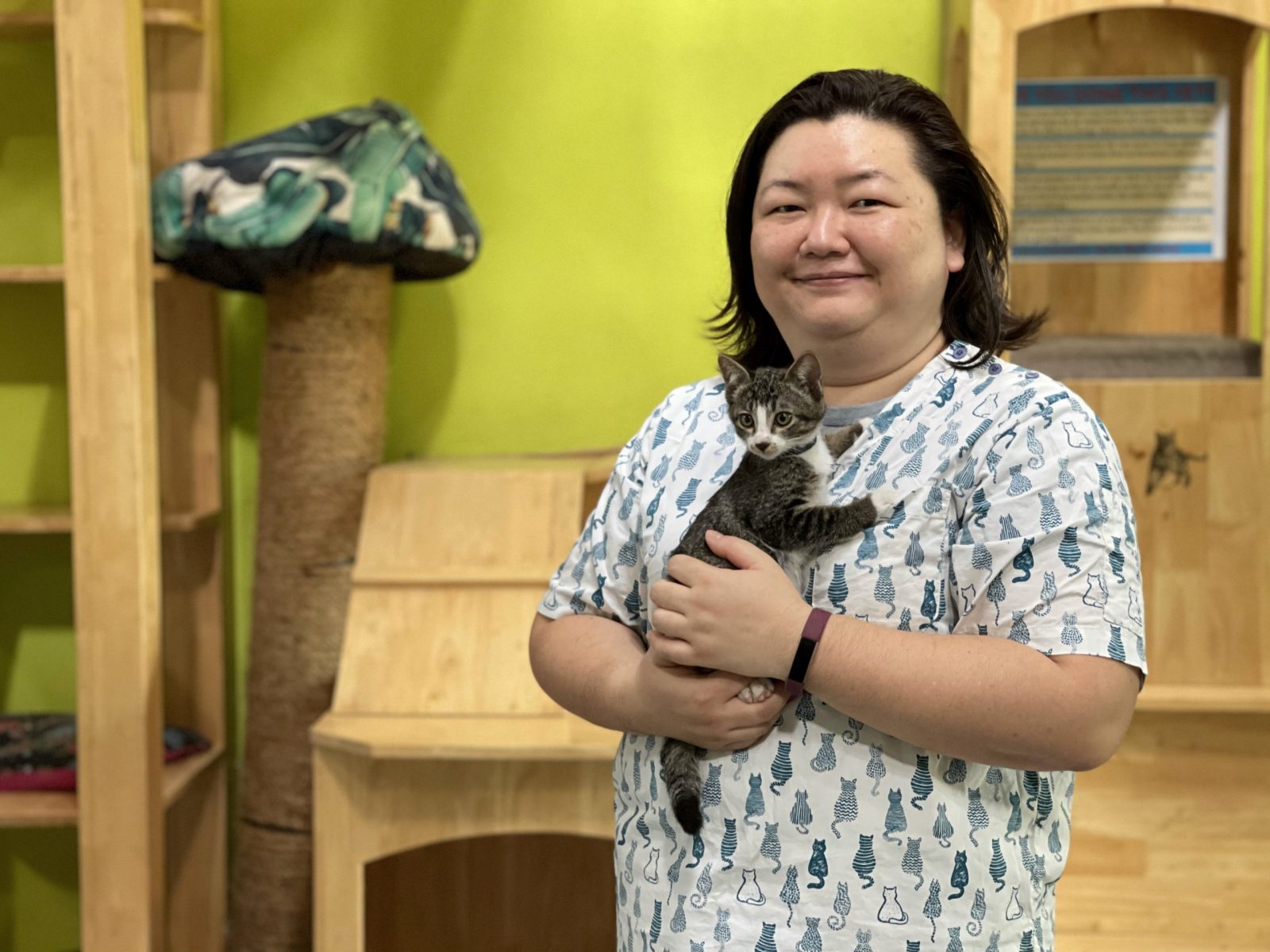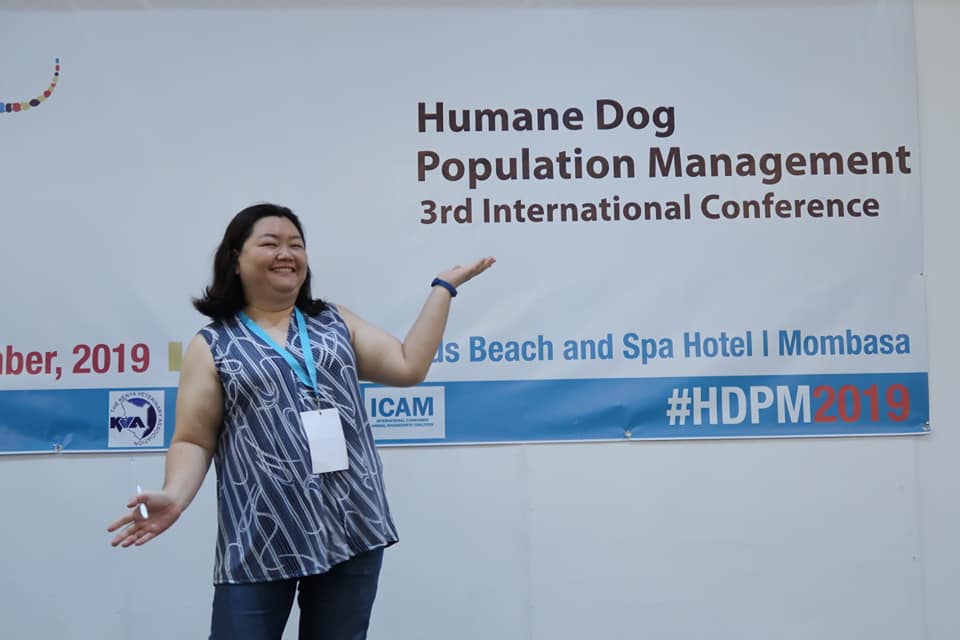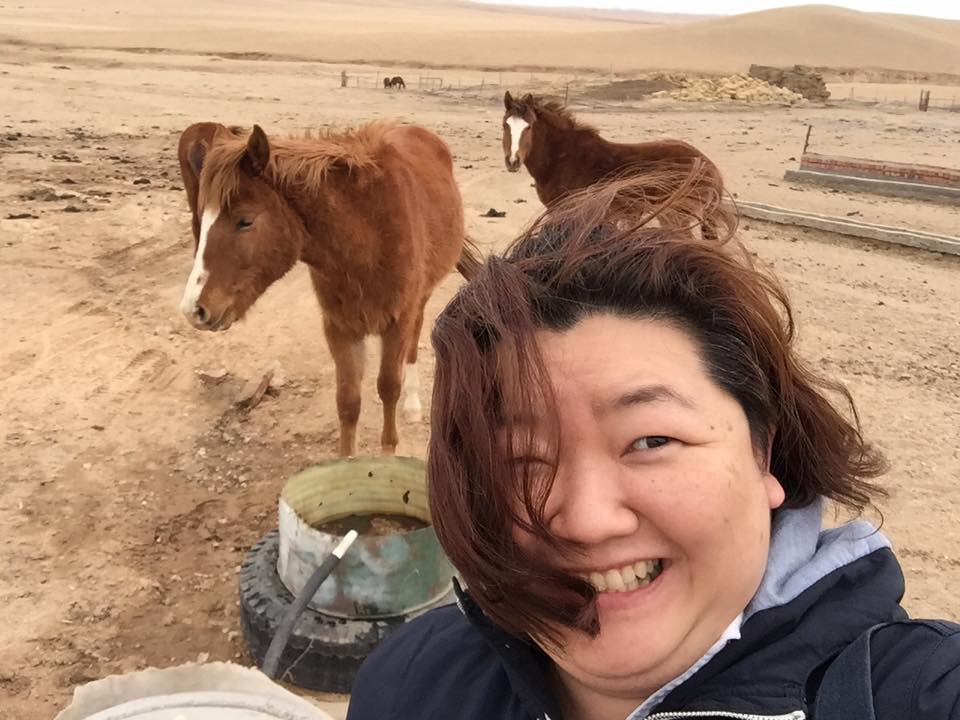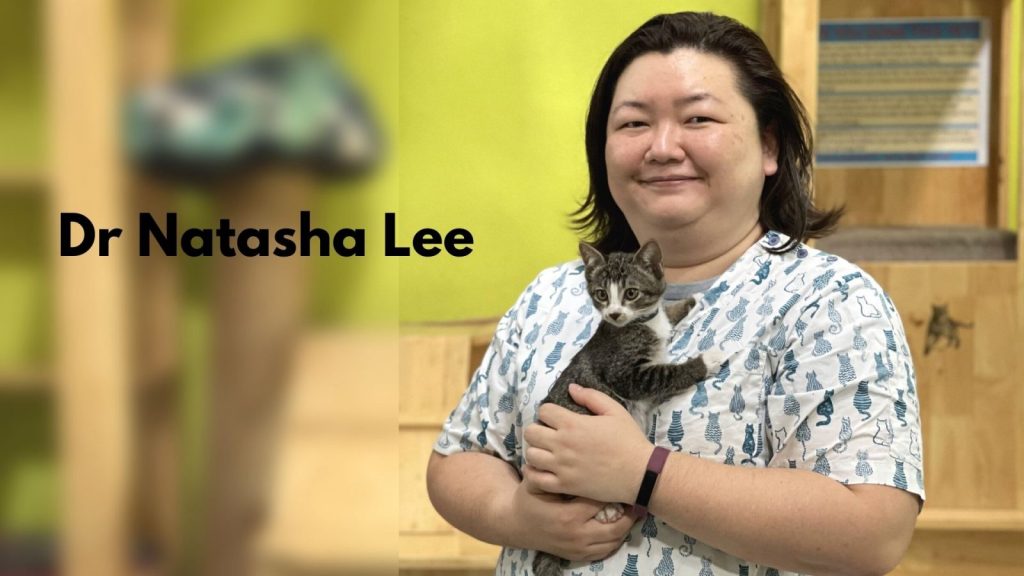Natasha Lee is a long-term member of the AWWC and became its Chair two years ago

Dr Natasha Lee
Could you introduce yourself to our members?
I’m a vet from Malaysia and work as an animal welfare consultant. I work with small and large, local and international NGOs around the world in areas including strategy planning, shelter medicine, population management, animal welfare assessment, and project management.
horizontal
Could you summarize your career?
I started out working with a local shelter in Malaysia before moving to World Animal Protection, one of the largest animal welfare organizations in the world. I now work as an independent consultant on a variety of projects across many species, not just companion animals, but equines and farm animals too. I am also back a full circle, working again with the Malaysian shelter to set up a low cost (but high quality) spay and neuter clinic.
You have a particularly strong interest in animal welfare. Where does this come from?
It began when I started working with the local shelter in my first vet job. It made me realize that animal welfare could be approached logically and scientifically! My knowledge and experience grew exponentially while working with large international organisations and academics in this field. I really enjoy seeing how we can incorporate scientific theories into practice and then collecting field data to build our scientific knowledge!

What do you most enjoy about your work?
Aside from the impact on animals, the best part about my work is getting to know other ‘heroes’ in the animal welfare world – and knowing that I played some small part in some of their journeys. Everyone on the AWWC is a hero on their own right and it is a pleasure to work with them.

You have a particularly strong interest in animal welfare. Where does this come from?
It began when I started working with the local shelter in my first vet job. It made me realize that animal welfare could be approached logically and scientifically! My knowledge and experience grew exponentially while working with large international organisations and academics in this field. I really enjoy seeing how we can incorporate scientific theories into practice and then collecting field data to build our scientific knowledge!
The AWWC team comprises experts from around the world:
- Dr Heather Bacon – [popup title=”Biography” padding=”0″ button=””]
Dr Heather Bacon is a UK veterinarian who has worked internationally for much of her career developing a variety of skills and experience in the field of animal welfare. Heather graduated from the University of Bristol with a degree in Veterinary Medicine and Surgery, and the University of Liverpool with a degree in Conservation medicine. Heather has recently submitted her PhD investigating the attitudes and culture of zoo staff towards zoo animals and teaches both undergraduate and postgraduate courses in cat and dog welfare, zoo animal health and welfare, and veterinary ethics at the University of Edinburgh’s Royal (Dick) school of veterinary studies.
Heather works as part of the team at the Jeanne Marchig international centre for animal welfare education at the University of Edinburgh, where she is responsible for developing and coordinating international veterinary training initiatives with a variety of academic and charity partners focussed on improving animal welfare around the world. Heather continues to work as a clinical veterinarian alongside her educational and outreach activities and is especially interested in behaviour, welfare and clinical health issues relating to free-roaming dogs and cats, and captive wildlife species. Heather has worked in several countries across Asia and Africa, and focusses her teaching on locally-appropriate solutions to animal welfare dilemmas.
Previously, Heather lived in China working as the Veterinary Director at the Animals Asia Foundation, an NGO working to end the trade in bear bile across Asia. She co-authored the WSAVA Global guidelines for animal welfare, and has published on issues including dog welfare in CNR, animal welfare prioritisation in the UK, effective education on euthanasia, and bear health and welfare. Heather also sits on the Federation of Vets of Europe animal welfare committee, Alliance for cat and dog contraception international advisory board, and the European Association of Zoos and Aquaria animal welfare working group.
[/popup]
- Dr Cheryl Good – read her interview
- Dr Katherine Polak – read her interview
- Dr Susan Hazel – [popup title=”Biography” padding=”0″ button=””]
Dr Susan Hazel graduated as a veterinarian from the University of Sydney in 1987 and then worked in mixed and small animal practice in Australia and the UK for several years. She then tried out the diversity of careers a veterinarian can choose, leaving practice to complete a PhD in medical research before postdoctoral positions in Stockholm, Sweden, and Sydney, Australia. Following this time Susan ran a cancer research lab at the Institute of Medical and Veterinary Sciences then worked in public health at the University of Adelaide, completing a Grad Cert (Public Health).
In 2006 Susan took up her current position teaching animal behaviour, welfare and ethics at the School of Animal & Veterinary Sciences at the University of Adelaide. She is Program Coordinator for the BSc(Animal Behaviour) and teaches animal science and veterinary students. Susan has Membership in Animal Welfare in the Australian and New Zealand College of Veterinary Scientists and is a Board member of the Dog & Cat Management Board of South Australia (SA) and RSPCA South Australia, a member of the Animal Welfare Advisory Committee of SA and Animal Therapies Ltd SA, and sits on a university Animal Ethics Committee. Since 2006 she has supervised 8 PhD, almost 30 Hons students and published over 50 scientific papers. Her research focuses on welfare and behaviour of companion animals, and aims to improve the welfare of dogs and cats and promote positive human-animal interactions. Her spare time is spent with her partner, daughter, dogs and cat.
[/popup]
- Dr Abdul Rahman – [popup title=”Biography” padding=”0″ button=””]
Dr.S.Abdul Rahman is the Executive Director and Past President of the Commonwealth Veterinary Association and Council Member, International Organisations of World Veterinary Association. Dr. S. Abdul Rahman graduated with a bachelor’s degree in Veterinary Science from Mysore Veterinary College, Bangalore in 1965 and a Masters from University of Madras in 1969 and PhD in Veterinary Parasitology from University of Queensland, Australia in 1976.
He is the former Chairman of the World Organisation for Animal Health (OIE) Animal Welfare Working Group and a former Chairman and Member, OIE Ad hoc Group on Stray Dog Control and former Chairman of OIE Ad hoc Group on Welfare of Working Equids.a He has served as a Consultant to Compassion in World Farming,(CIWF) UK and World Animal Protection (WAP). He is also a former Member of Animal Welfare Board of India(AWBI).He has with joint collaboration between Commonwealth Veterinary Association (CVA) and WAP conceptualised the Concepts of Animal Welfare to be included as part of the veterinary curriculum in India.
He is actively engaged in promoting Animal Welfare in Islamic countries by raising issues of stunning prior to slaughter, long distance of transport especially in the Middle East. He has contributed two chapters on Transport of Animals, 1. Indian Subcontinent and 2. Middle East which has been published in the book “Long Distance Transport and Welfare of Farm Animals” published by CAB International Publication. He has also authored a paper commissioned by OIE on Islam and Animal Welfare with special reference to cruelty to animals during transport and slaughter to sensitise religious authorities in Islamic countries on animal welfare issues.
Dr Rahman has published more than 125 scientific papers and has authored a book on Veterinary Parasitology. His current interests include Veterinary Public Health especially involving Zoonosis to include control programmes for Rabies and Cysticercosis and Epidemiology and Control of Emerging Diseases, Meat Production and Modernisation of Abattoirs, Food Security and Safety, Adaptation to Climate Change and Animal Welfare.
He is the founder Trustee of Rabies In Asia (RIA), an international organisation supported by WHO for the control of Rabies in Asia and a Founder Life Member and President of Association for Prevention and Control of Rabies in India (APCRI). He was also a member of the WHO Expert Panel on Rabies.
He is the Executive Director of the Alliance for Rabies Control (ARC), UK.and Country Head of Global Alliance for Rabies Control (GARC) India.[/popup]
- Dr Shane Ryan – Executive Board Liaison

